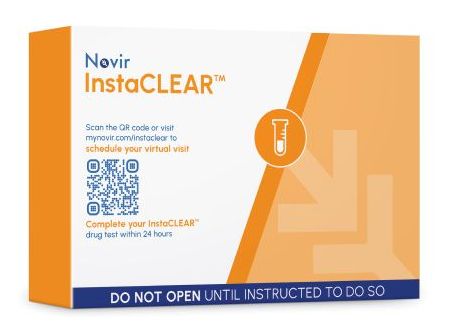So one of your CDL drivers comes in Monday morning and says, “Hey boss. I sure hope I don’t get selected for a drug test today. I have Actual Knowledge I did way too much coke this weekend!”
Certainly, he could be joking, but what if he’s not? As an employer, what do you do?
Actual Knowledge
“Actual Knowledge … means actual knowledge by an employer that a driver has used alcohol or controlled substances based on the employer’s direct observation of the employee, information provided by the driver’s previous employer(s), a traffic citation for driving a CMV while under the influence of alcohol or controlled substances or an employee’s admission of alcohol or controlled substance use …. Direct observation as used in this definition means observation of alcohol or controlled substances use and does not include observation of employee behavior or physical characteristics sufficient to warrant reasonable suspicion testing under §382.307….” §382.107
Some Q&A about Actual Knowledge from the FMCSA website:
Self-Admission: A driver admits to a company official they have used a controlled substance as defined in the National Institute of Drug Abuse (NIDA-5) for a 5 panel DOT drug test
If an employee admission does not fall under 49 CFR §382.121 (employer self identification program), then by default the admission provides the employer with “actual knowledge” of drug or alcohol use, which triggers a DOT SAP return-to-duty process under Part 382, Subpart B.
What is meant by the terms “use alcohol” or “alcohol use”? Is observation of use sufficient, or is an alcohol test result required?
The term “alcohol use” is defined in §382.107. The employer is prohibited in §382.205 from permitting a driver to drive when the employer has actual Knowledge of the driver’s use of alcohol, regardless of the level of alcohol in the driver’s body. The form of Knowledge is not specified. It may be obtained through observation or other method.
So that means Actual Knowledge is not hearsay. It is not suspicion. It is Actual Knowledge.
At a recent SAPAA conference, leaders from the FMCSA addressed a number of questions regarding Actual Knowledge. With the rollout of the FMCSA Clearinghouse, C/TPAs like InOut Labs have some additional responsibilities, including keeping our clients educated and helping them with compliance. Actual Knowledge is one of the items that is required to be reported to the Clearinghouse.
NOT Actual Knowledge
- A violation such as a DUI in a non-CMV.
- A positive test on a Non DOT drug or alcohol test
- Possession of a controlled substance
- Employee has a medical marijuana card
- Hearsay
- Reasonable Suspicion
The above seem like they may be Actual Knowledge, but are not, at least on their own.
But – and this is important – an admission of drug or alcohol use is Actual Knowledge. Let’s say, for example, a regulated employee fails a non-DOT drug test conducted under company authority. This alone is not Actual Knowledge. However, if you ask the individual if he indeed was using drugs, and he admits to it, that would qualify as Actual Knowledge.
The thing about Actual Knowledge is that it does not require that the regulated employee fail a drug or alcohol test. Once the employer obtains Actual Knowledge of a substance abuse violation, that triggers the same process that would occur if he failed a drug or alcohol test.
What that means is the following:
- Immediate removal from safety-sensitive work
- Reporting to the FMCSA Clearinghouse
- Referral to a Substance Abuse Professional
- Completion of a substance abuse program recommended by the SAP
- Successfully passing a Return to Duty drug and/or alcohol test as per the SAP
- Follow-up testing for as long as five years
Employers of CDLs need to understand what Actual Knowledge is.
For non-regulated employers, this may be an item you would like to address in your written policy.
Actual Knowledge is quite different from Reasonable Suspicion. Reasonable Suspicion testing is an important process that (for DOT) requires the supervisor be trained.
Actual Knowledge is also reportable to the FMCSA Clearinghouse. InOut Labs is one of the first C/TPAs to offer Clearinghouse services to its clients.
Want in? Join our consortium management program here.


